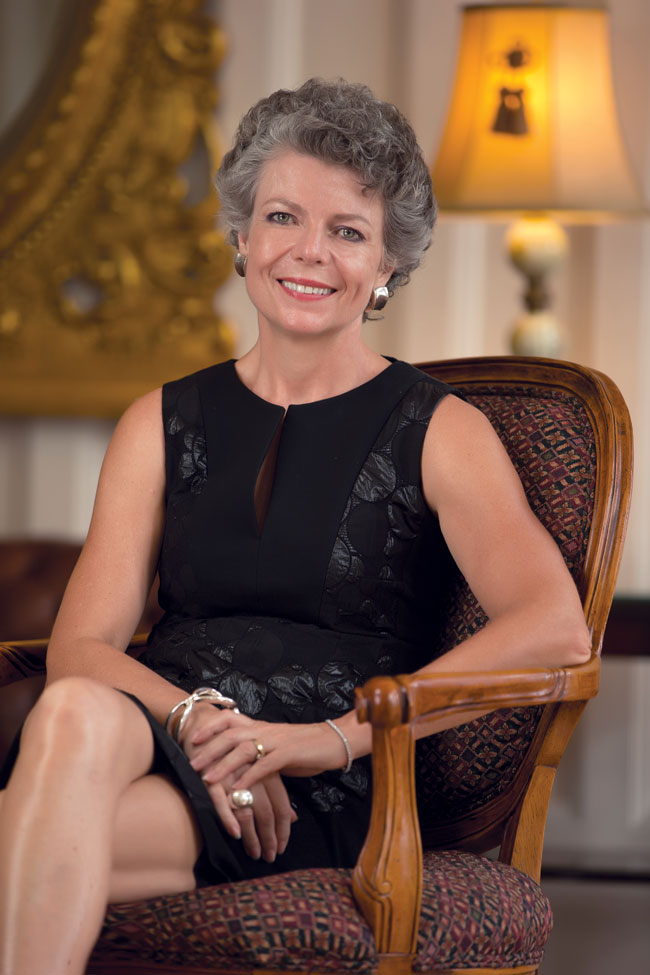
John Ruskin, the leading critic and social thinker of the Victorian era, wrote in Unto This Last, “Let us reform our schools, and we shall find little reform needed in our prisons.”
Today we might say that this thinking is a little too binary; many children grow up in circumstances that put them in contact with both the education and the justice systems.
Others struggle with issues of family breakup, transience or violence either domestic or in their neighborhoods. Children who stand out as different are often the victims of bullying.
Increasing numbers fall into the traps of drug or alcohol abuse. We no longer have workhouses, but it’s still a tough world for the 18 percent (more than 13 million) of U.S. children living in poverty.
At Peabody College, we know that complex problems require complex solutions. That’s one of the main reasons why we consider ourselves a college of education and human development.
Our efforts encompass not only what goes on in the classroom but also what goes on in the early years before formal education, what happens in the communities that surround schools, and what kinds of systemic changes can improve a child’s odds of learning and flourishing. This issue of the Peabody Reflector zooms out a bit to examine some of the ways that education and youth development intersect, both in schools and in places like the juvenile justice system.
Professor Maury Nation, the subject of our lead story, is Vanderbilt’s point person for several initiatives having to do with creating and supporting safe and supportive school environments.
“It’s still a tough world for the 18 percent (more than 13 million) of U.S. children living in poverty.”
Importantly, projects like the Nashville Longitudinal Study of Youth Safety and Wellbeing are collaborative in nature and structure, involving entities like Metropolitan Nashville Public Schools, the Office of the Mayor, the Nashville Police Department and local nonprofit youth development groups.
Together, they are taking a multifaceted approach to examining student experiences not only in schools but with external factors like housing, policing and transportation. Another initiative, PASSAGE, is tackling the problem of racial disparities in school discipline policies and practice. Nation is developing strength-based approaches to discipline that help students build social-emotional competencies and conflict resolution skills.
Professor Mark Lipsey, who co-directs the Peabody Research Institute, has led a highly respected career in the field of program evaluation, where he has developed the methodologies of meta-analysis to study the outcomes of various juvenile justice and social service programs. Far from depicting a failing system, Lipsey’s studies have demonstrated the merit of interventions like mentoring and cognitive behavioral therapy for reducing teen encounters with the justice system.
Just as recidivism threatens to derail young lives, students who are treated for drug or alcohol problems are often at risk of relapse when they return to their former circumstances. Professor Andy Finch has been studying the phenomenon of recovery schools and the hope they offer to young people trying to get their educational goals back on track. He’s been recognized nationally for his work.
Of course, Peabody continues to work diligently to improve schools. The Tennessee Education Research Alliance, our partnership with the Tennessee Department of Education, has recently completed its first year and is showing promise for using data to drive policy change and improve Tennessee schools. Initiatives in school leadership, turning around low-performing schools, professional learning, and English language instruction are advancing and taking shape.
We also take a look at Peabody’s Susan Gray School and its fellows program for students pursuing master’s degrees in special education. With support from Patricia and Rodes Hart, the Susan Gray School remains a model for training students and demonstrating the benefits of inclusive education.
Camilla Persson Benbow
Patricia and Rodes Hart Dean of Education and Human Development